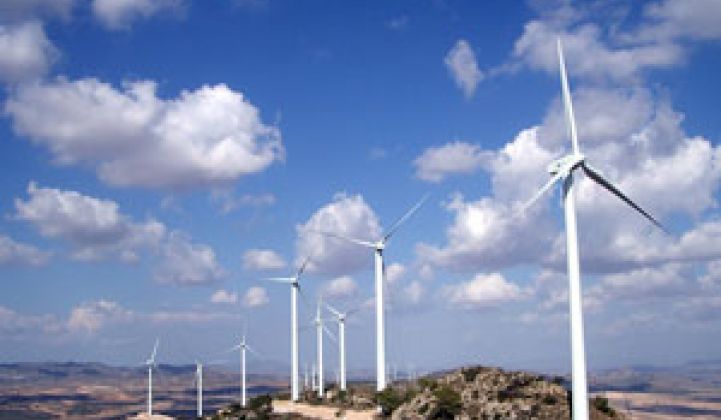Financing for wind farms has disappeared and fewer companies will be able to develop the kind of "mega projects" needed to feed the growing demand for energy, said Reyad Fezzani, CEO of BP's wind and solar operations, at the Dow Jones Alternative Energy Innovations conference Wednesday.
In just the last month, money that typically would be available for building renewable-energy projects has "completely dried up," thanks to the financial market crisis, Fezzani said during a keynote and on-stage interview with Yuliya Chernova, editor of Dow Jones' Clean Technology Insight.
To weather the downturn, BP and other companies will have to fund those wind farms and solar-power plants using equity finance. They can then refinance when the credit crunch eases, Fezzani said.
"This is a serious issue for those who don't have equity on the balance sheet to continue to operate," he said. "You probably will see behind the scene, frantic activities to bridge the gap."
Fezzani's remarks reaffirmed what many solar, wind and biofuel industry executives have expressed since the fall of a series of U.S. investment banks and mortgage lenders (see Lehman's Fall to Create Greentech Woes and VCs to Solar Startups: A Deal You Can't Refuse).
His comments also came the same day that Carpinteria, Calif.-based Clipper Windpower said it had completed a joint-venture agreement with BP Wind Energy to develop a 5,050-megawatt wind farm in South Dakota.
Fezzani said the South Dakota project represents the "next frontier" for wind-farm development, and one in which only a small group of companies can participate. Iberdrola, the Spanish wind energy giant, is another player (see Iberdrola to Spend $1B on Renewable Energy).
Despite the difficult times ahead, Fezzani said Americans' demand for electricity shows no signs of lagging, making wind and solar projects good bets in the long run.
Fezzani also sees a trend in which wind-turbine makers will devote less money and energy on building wind farms to create a market for their products.
"You will find that the days of wind turbine manufacturers bidding into projects are behind us," Fezzani said. "We need them to invest in R&D to prove the efficiency of their products."
Chernova asked Fezzani about his company's plan to nix a solar factory expansion plan in Maryland, and Fezzani largely evaded the question with statements about how bullish he feels about the solar market in the United States.
"When it comes to deciding where we focus on investments, we do it like everybody else," Fezzani said. "It's economically driven."
BP Solar recently halted a $97 million plan to build a silicon-ingot factory at its headquarters in Maryland, citing intense competition from low-cost producers in Asia (see BP Solar Nixes Factory Expansion).



